Place your adverts here on InfoDig @ low rates; banner ads, sponsored links and guest articles etc. Contact us

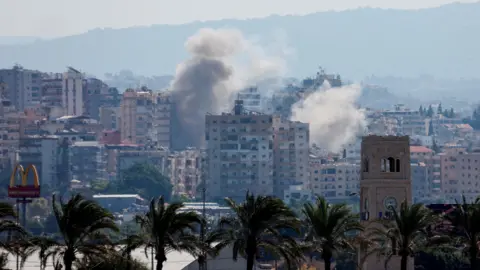 Reuters
Reuters
Smoke billowed from buildings in the southern Lebanese city of Tyre following fresh Israeli strikes
Israel’s military chief has told troops that extensive air strikes in Lebanon targeting the armed group Hezbollah could pave the way for them to “enter enemy territory”.
"You hear the jets overhead; we have been striking all day. This is both to prepare the ground for your possible entry and to continue degrading Hezbollah," Lt Gen Herzi Halevi said.
Lebanon’s health minister said more than 50 people were killed in strikes on Wednesday, which the Israeli military said hit Hezbollah’s intelligence directorate, as well as launchers and weapons stores.
Diplomatic efforts are gathering pace to de-escalate the hostilities, with France and the United States proposing a 21-day ceasefire.
The remarks by Lt Gen Halevi are the plainest indication yet from a senior figure that a ground invasion into Lebanon may be imminent.
“We keep striking and hitting them everywhere,” he told soldiers from the 7th Brigade taking part in an exercise on Israel’s northern border on Wednesday - in a statement quoted by the Israel Defense Forces (IDF).
“The goal is very clear - to safely return the residents of the north. To achieve that, we are preparing the process of a manoeuvre, which means your military boots... will enter enemy territory.”
Lt Gen Halevi said troops would "destroy the enemy" and its infrastructure.
There was no immediate sign that Israel was poised to enter Lebanon and the US Pentagon said on Wednesday it did not appear "imminent".
But the IDF chief of staff’s remarks were published shortly after the IDF called up two reserve brigades for "operational missions in the northern arena”.
When a BBC team visited an Israeli border town on Wednesday, the army said that Hezbollah fighters must move well back from the border, to positions north of the Litani River, as demanded by a UN resolution passed in 2006.
Israel's allies, including the US, have said they are working to avoid all-out war in the region.
Several media reports on Wednesday said senior US officials were attempting to broker a short-term pause in fighting between the two sides.
French President Emmanuel Macron met with US President Joe Biden at the UN General Assembly in New York to discuss efforts to secure a ceasefire.
Shortly after the talks, France said the two countries were proposing a "temporary ceasefire" of 21 days "to allow for negotiations".
"There cannot be a war in Lebanon. This is why we urge Israel to cease this escalation in Lebanon and to Hezbollah to cease this missile launch to Israel," Mr Macron told the UN.
UN Secretary-General Antonio Guterres urged an immediate ceasefire, and said "hell is breaking loose".
Israel's envoy to the UN, Danny Danon, said it was grateful for diplomatic efforts to avoid escalation but would use "all use all means at our disposal, in accordance with international law, to achieve our aims".

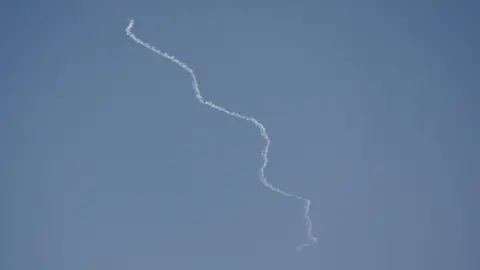 Reuters
Reuters
Israel's David's Sling air defence system reportedly intercepted the missile north of the central Israeli city of Tel Aviv
Cross-border fighting continued on Wednesday, with Hezbollah saying it had targeted the headquarters of Israel's Mossad spy agency with a missile fired towards Tel Aviv - the first time Hezbollah has targeted the heavily populated area.
It was intercepted by air defences and there were no reports of damage or casualties. The launcher was subsequently destroyed in an air strike, the IDF said.
IDF spokesman Lt Col Nadav Shoshani said the missile was heading “towards civilian areas in Tel Aviv”, noting that “the Mossad headquarters is not in that area”.
Hezbollah also fired dozens more rockets into northern Israel, injuring two.
Meanwhile, the IDF said Israeli fighter jets had hit more than 280 “Hezbollah terror targets” in the latest wave of air strikes on Lebanon.
Lebanese Health Minister Firass Abiad told reporters that the strikes had killed at least 51 people and injured 223, without saying how many were civilians or combatants.
The health ministry reported deadly Israeli attacks in southern areas including Joun, in the Chouf mountains near the southern city of Sidon, as well as Maaysrah, in another mountainous area north of Beirut, and in the north of the Bekaa Valley.

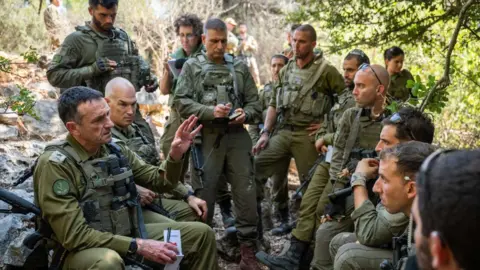 IDF
IDF
Lt Gen Herzi Halevi told Israeli troops on the border with Lebanon to prepare to "go in [and] destroy the enemy"
More than 600 people have been reported killed across Lebanon since Monday, when Israel began an intense air campaign to destroy what it said was infrastructure built up by Hezbollah since they last fought a war in 2006.
Another 90,000 people in Lebanon have been newly displaced, adding to the 110,000 who had fled their homes before the escalation, according to the UN. Almost 40,000 are living in shelters across the country.
Nearly a year of deadly cross-border fighting sparked by the war in Gaza has also displaced around 70,000 people in northern Israel, whose safe return the Israeli government and military say they want to ensure.
Hezbollah says it is attacking Israel in support of its Palestinian ally, Hamas, and will not stop until there is a ceasefire in Gaza. Both groups are backed by Iran and proscribed as terrorist organisations by Israel, the UK and other countries.
BBC visits Lebanese tourist city deserted after Israeli attacks
It comes after an unprecedented wave of attacks on Hezbollah.
Last week, 39 people were killed and thousands were wounded when pagers and walkie-talkies used by Hezbollah members to communicate exploded in two waves across Lebanon. Israel is widely believed to be responsible for the attacks.
Then, an Israeli air strike on Friday on the group’s stronghold of Dahieh, in southern Beirut, essentially wiped out the chain of command of its main fighting unit, the Radwan Force. The group confirmed that one of its top military leaders, Ibrahim Aqil, was among 55 people killed.

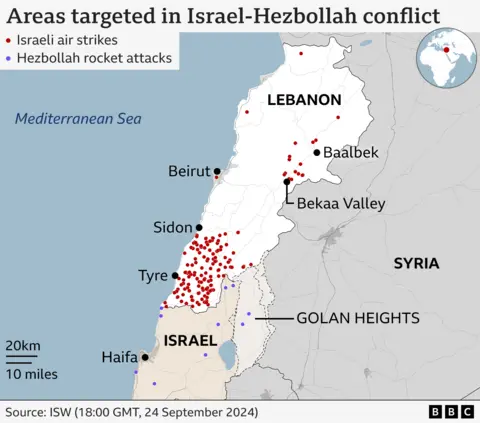

 23 hours ago
80
23 hours ago
80
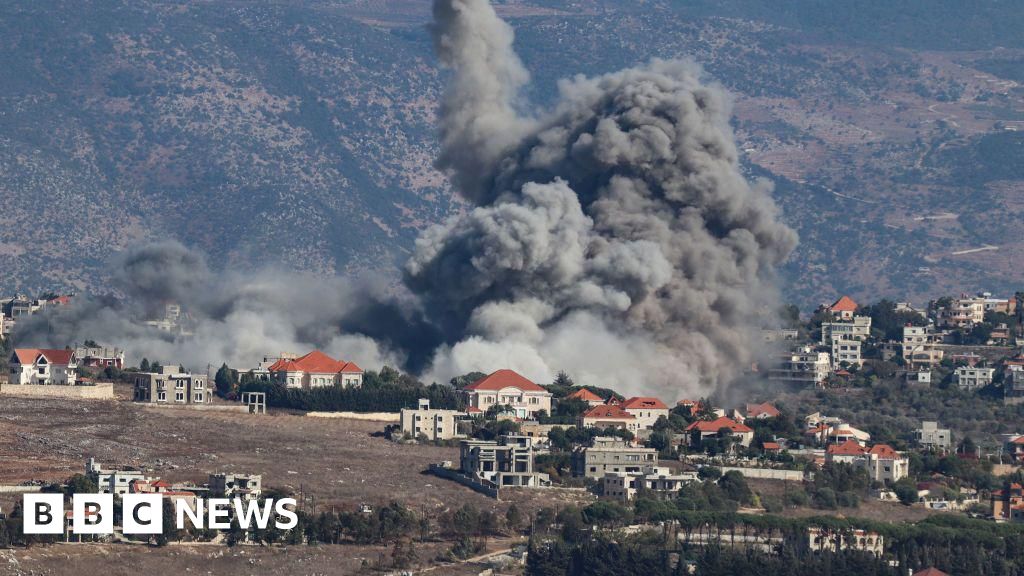
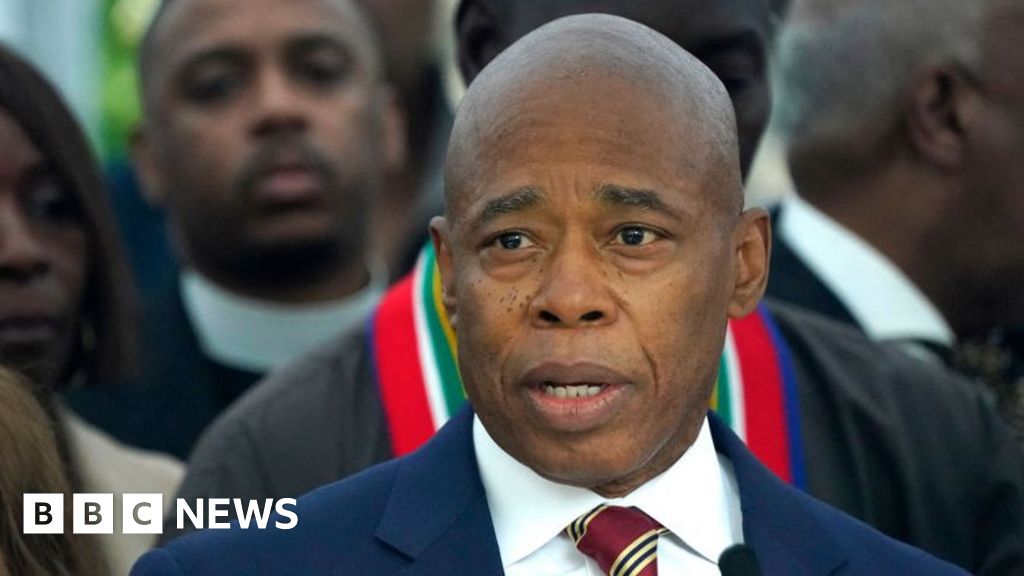
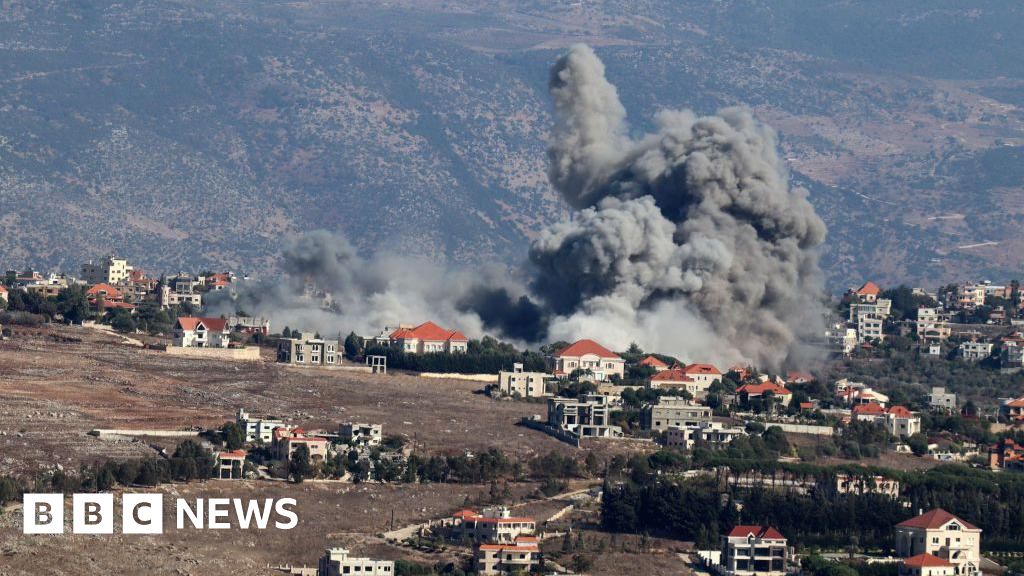



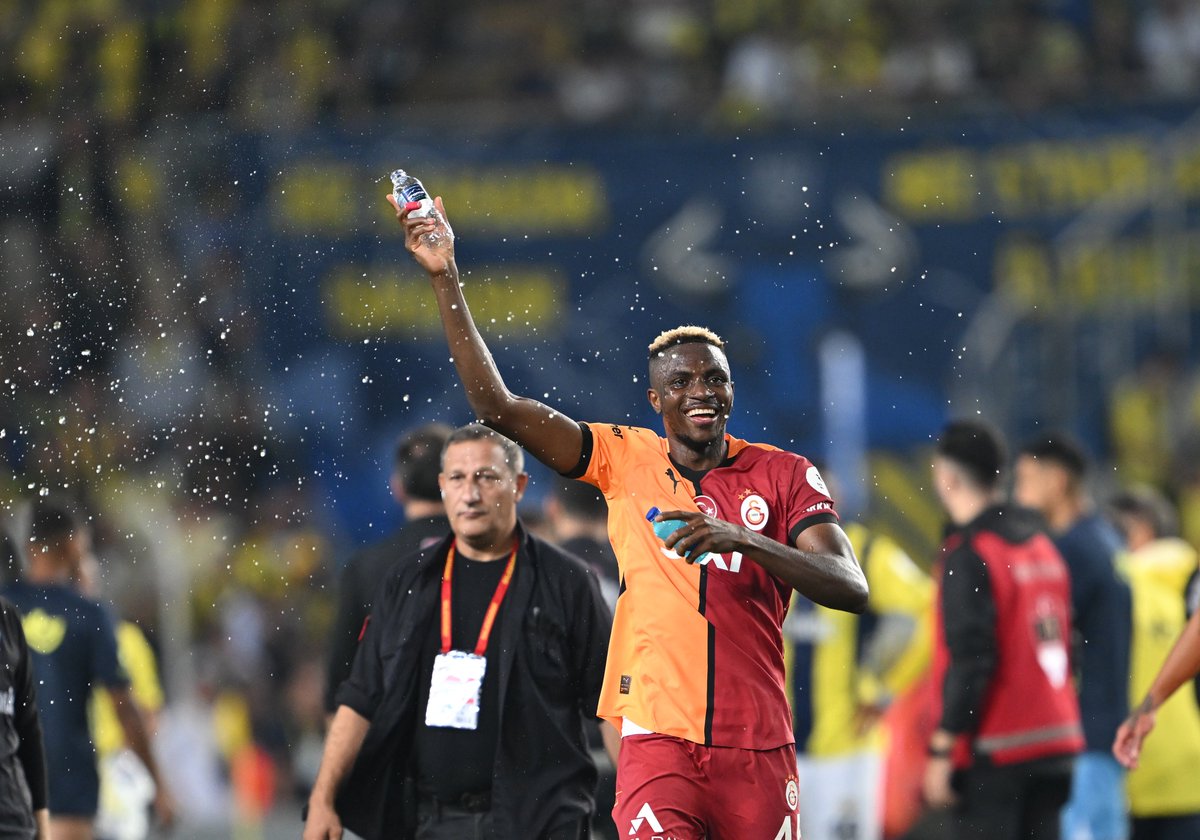



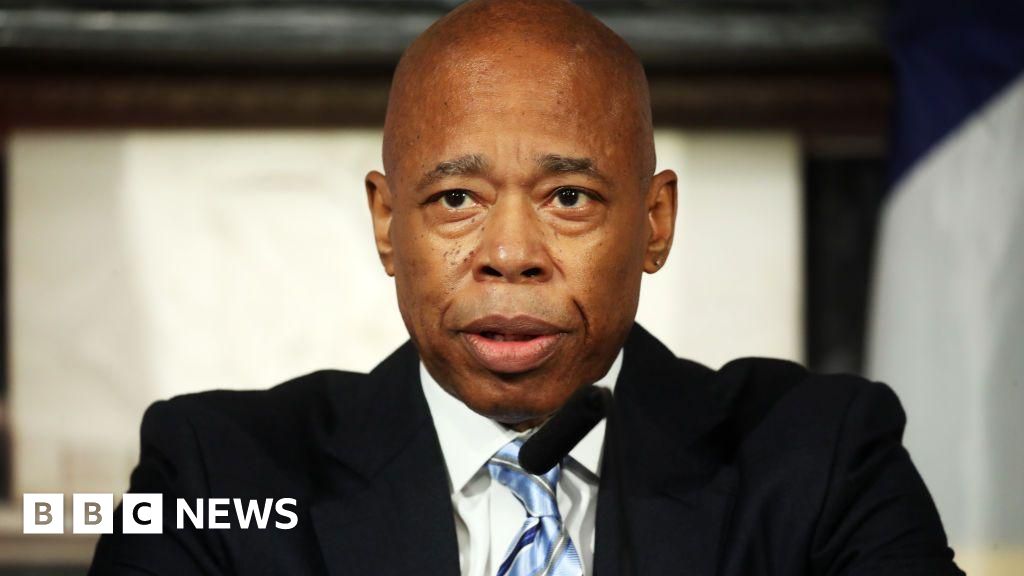



 English (US) ·
English (US) ·